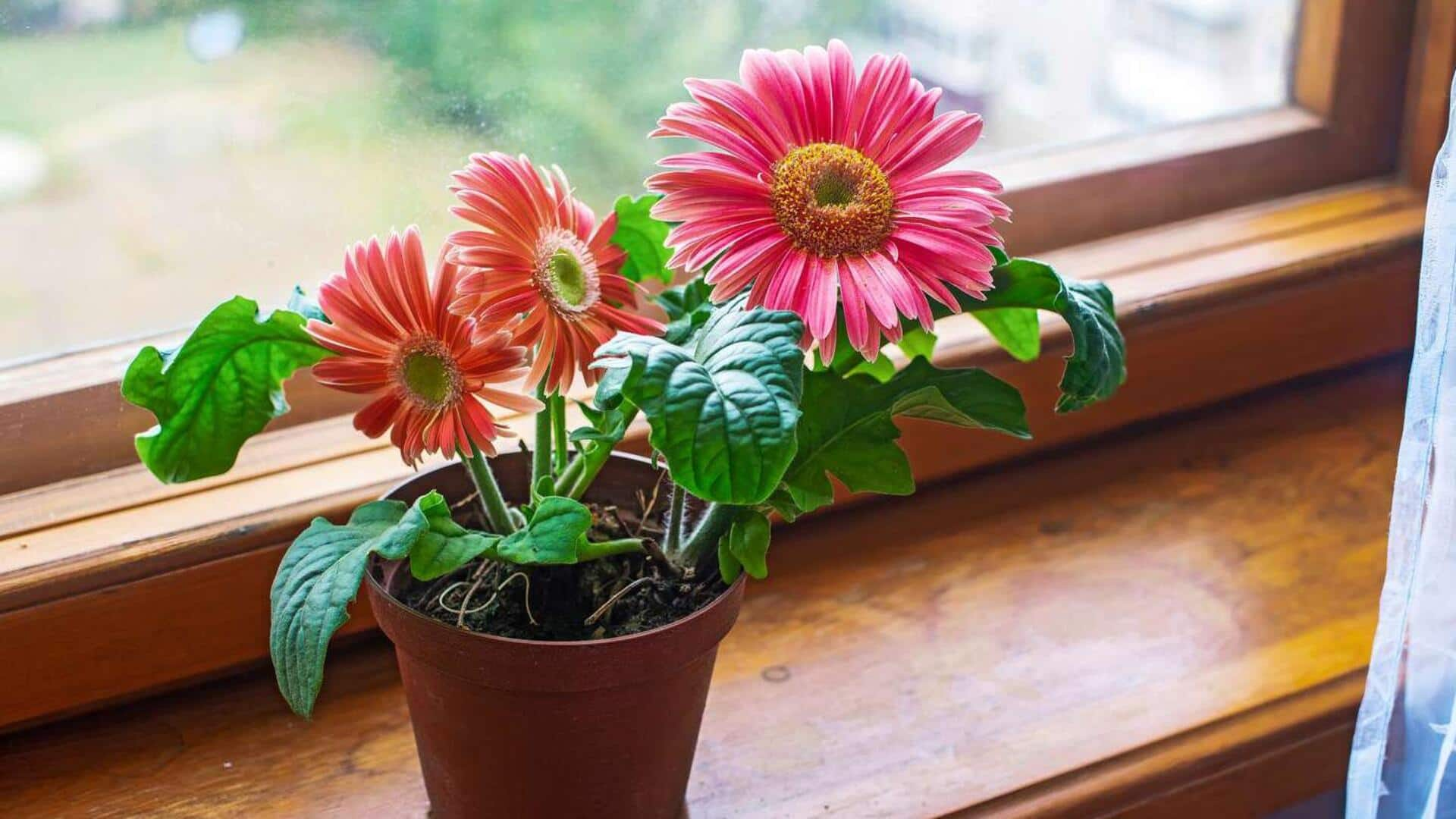
How to take care of your gerbera daisies
What's the story
Gerbera daisies, with their bright and cheerful colors, bring a burst of sunshine to any garden or home. However, they require a bit of special care to keep them growing and blooming continuously. This article details five key care tips for gerbera daisies, ensuring they flourish and continue to brighten up your space.
Location
Select the right location
Gerbera daisies need plenty of sunlight to thrive. You should position them in a spot where they can bask in at least six hours of sunlight daily. But, in super hot climates, some afternoon shade can shield them from getting burnt. If you're growing them indoors, keep them near a window with a lot of light.
Soil
Ensure proper soil conditions
The soil for gerbera daisies needs to be well-draining and full of organic stuff. A mix with two parts peat moss, one part loam, and one part perlite or sand makes a perfect home for these plants. Keep the pH level of the soil between 5.5 and 6.5. They like it a little acidic!
Watering
Water wisely
Watering is key for gerbera daisies, but be careful not to overdo it! Overwatering can cause root rot, a common problem with these plants. Water them deeply once the top inch of soil feels dry to the touch. Don't wet the leaves, it invites fungal diseases. Always water at the base of the plant, and do it early in the day.
Fertilization
Fertilize regularly
Feeding gerbera daisies with a balanced fertilizer every two weeks during their growing season will help them produce those vibrant blooms and lush foliage you love. Use a water-soluble fertilizer with an NPK ratio of 20-20-20. Cut back on fertilization during the winter months or when the plants are not actively blooming.
Pest control
Monitor and manage pests
Gerbera daisies are prone to pest infestations, particularly aphids and spider mites. These pests can cause significant damage to the plant if not promptly addressed. Regularly check leaves—both tops and undersides—for signs of pests. Early detection is key to preventing large-scale infestations. If pests are found, treat affected plants with insecticidal soap or neem oil, following product instructions for application.